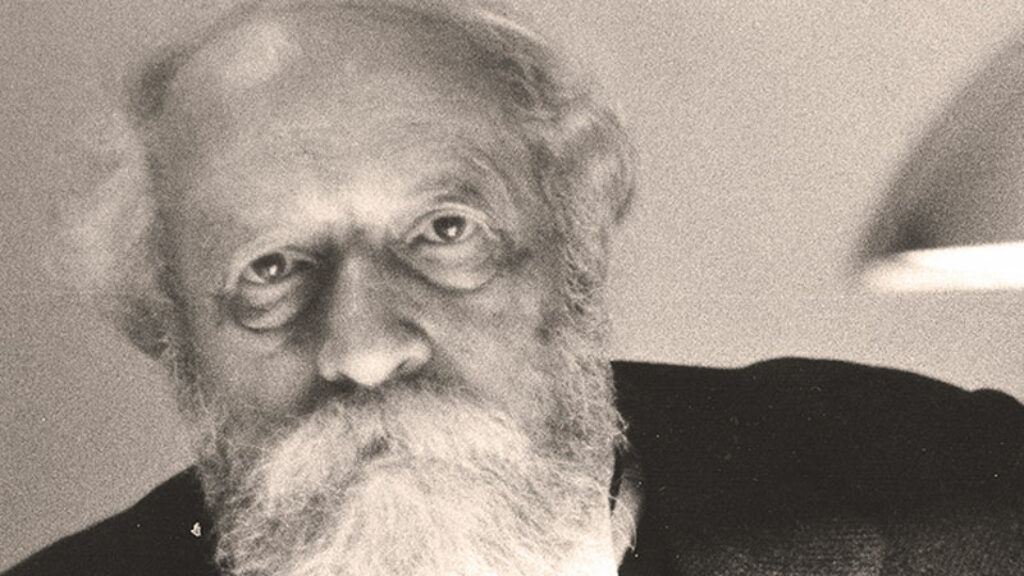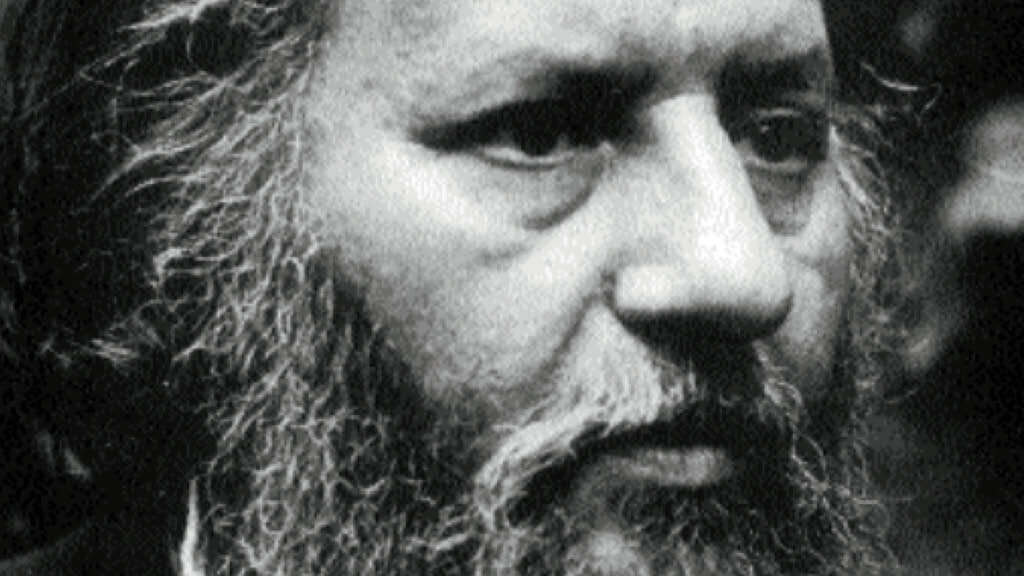What They Talk About When They Talk About Golems
When, in his brilliant essay, Michael Weingrad argued that golems are “a classically negative Christian imagining of Judaism itself: unlovely, slightly threatening, and hopelessly literal and earthbound,” I wasn’t quite convinced. (See “Brave New Golems” in this issue.) It didn’t tally with what I knew of golems from Gershom Scholem, Moshe Idel, and, of course, the Maharal of Prague tales, as filtered through the modest imagination of Yudl Rosenberg. I guess I just don’t get out enough, so I hadn’t heard any anti-Semitic golem stories.
Then I saw The Atlantic’s now-infamous video clip of white nationalist leader Richard Spencer “hailing Trump,” in which he says, “One wonders if these people are people at all, or instead soulless golem animated by some dark power to repeat” set talking points, and for a second I thought this was the kind of thing Weingrad was talking about. But, if you listen closely, Spencer was describing the media—for which he also gleefully used the old Nazi term Lügenpresse (lying press)—not the Jews, as a golem.
When CNN made the mistake of saying that Spencer had called Jews golems, the Daily Caller jumped: “SURPRISE! CNN Makes A False Claim And Press Picks It Up.” The story that followed seemed to absolve Spencer of anything save contempt for the mainstream media—but not so fast. Why did Spencer pick a Jewish folk tale as his punchline in a racist, pseudo-Nietzschean rant (“To be white is to be a striver, a crusader, an explorer, and a conqueror. . .”)? And what is the identity of this dark power that animates and controls the press golem? Which kabbalist rabbi—or is it a globalist cabal?—inscribes the Hebrew word emet, truth, on the forehead of the soulless clay man and sends him out on the Sunday morning talk shows to rampage against the Gentiles?
Of course, the reason Richard Spencer’s smug ravings before a crowd of 150 sieg-heiling guys are newsworthy is that he is a leader of the “alt-right,” and Steve Bannon, President-elect Trump’s chief strategist, famously told a journalist at the Republican National Convention that his website Breitbart News Network was “the platform of the alt-right.” It would be comforting to think that Bannon didn’t really mean people like Spencer, but just a few months earlier Breitbart had published a long primer on the movement by its star provocateur Milo Yiannopoulos and Allum Bokhari. It described Spencer as a movement intellectual and credited him with inventing the very term “alt-right.” The general tone of the piece was that the alt-right consists of a bunch of merry pranksters who read Spengler; think brave, heretical thoughts about racial differences; and should be taken seriously even if they do sometimes make Holocaust jokes. After the election, Bannon clarified to The Wall Street Journal that “our definition of the alt-right is younger people who are very anti-globalist, very nationalist, terribly anti-establishment,” which doesn’t sound quite so bad even if it isn’t your cup of ideological tea (“Oh, you know Dick, he’s terribly, terribly anti-establishment”).
Bannon also said that Breitbart provides “an outlet for 10 or 12 or 15 lines of thought,” including libertarianism, gay conservatism, right-wing Zionism (true), and so on, of which the alt-right is just one. Although he conceded that the latter has “some racial and anti-Semitic overtones,” he maintained that he has “zero tolerance” for such things. But it’s a funny kind of zero, for if Breitbart is not exactly a platform for these “white supremacists, anti-Semites, and Internet trolls” (that’s the National Review’s definition), it has subtly and unsubtly encouraged them—and its comments section has become one of their favorite playgrounds.
I am tempted to suggest that Bannon thinks of the alt-right as a golem, earthbound and unlovely but useful, especially in swing states. However, after reading Kimberley A. Strassel’s Wall Street Journal profile and a transcript of a talk Bannon gave to a Vatican conference a couple of years ago, I don’t think that’s quite right. What Bannon seems to believe is that the election of Donald Trump, Brexit, and various Euro-nationalist movements are part of a worldwide revolt against the dark powers of international bankers, crony capitalists, and “what we call the party of Davos.” Whatever bigotry and anti-Semitism is in these populist movements will, he said, eventually get “washed away.” This is less than entirely reassuring.
The resurgence of old-fashioned anti-Semitism in the 21st century is a story that, unfortunately, we’ll continue to cover in these pages. (If it all washes away, we’ll be sure to cover that too.) My own recent brush with such anti-Semitism actually came from the left, on a campus (my own) famous for being at the cutting edge of radical activism.
A young colleague at Oberlin College, an assistant professor of rhetoric and composition named Joy Karega, turned out to have posted several anti-Semitic comments, memes, and Jewish conspiracy theories on her Facebook page. One of the least vile of these pictured a reptilian-looking old man identified as Jacob Rothschild with the text, “Hello there, my name is Jacob Rothschild. My family is worth 500 trillion dollars. We own nearly every central bank in the world. We financed both sides of every war since Napoleon. We own your news, the media, your oil, and your government,” to which Professor Karega added, “Yep. This family and several others. Which is why I’m not concerned with or interested in any discussions or plans of action that don’t get at things from the top-down.” This is, of course, a more general version of the claim Richard Spencer was making when he called the media “a soulless golem, animated by some dark power.” I bet he has ideas about a “top-down” plan of action too.
In all the subsequent hubbub on campus as to whether Professor Karega’s posts were anti-Semitic—a deep literary question on the order of whether a five-line poem that goes aabba is a limerick—there was surprisingly little discussion of their specific moral and historical content. Instead, much of the controversy focused on Professor Karega’s identity as an African American woman, her popularity among student activists, her support for the BDS movement (the suggestion being that maybe this was just a case of excessive but understandable anti-Zionist zeal), and, most incredibly, whether these postings were somehow part of her academic research. To its credit, a solid majority of the faculty signed a statement that forthrightly called her posts anti-Semitic and condemned “any manifestation of bigotry on our campus.”
Conspiracy theories about the Rothschilds have been around since the 18th century (when I talked about the Karega affair with a Jewish historian, she kept repeating “The Rothschilds! The Rothschilds!” in half-amused horror). In recent years, Lord Jacob Rothschild, an octogenarian investment banker and philanthropist, has become a particular obsession of New World Order theorists. Like a Bond villain, he is imagined to preside over a dark globalist shadow power that rules the world through central banks, the mainstream media and so on.
In the fall of 2014, the new nationalist-populist party in Germany, Alternative für Deutschland (AfD), quickly expelled one of its members, a regional legislator named Jan-Ulrich Weiss, for posting a Jacob Rothschild meme on his Facebook page that was virtually identical (though in German) to Professor Karega’s. German papers reporting the story declined to reproduce the post, with its picture of Rothschild, his features digitally distorted into a leer, finding it too reminiscent of Nazi propaganda. Perhaps Weiss’s sacking was precisely a case of anti-Semitism getting “washed away” from a populist-nationalist movement just as Steve Bannon has predicted. Then again, maybe Weiss understood his constituents better than he understood the AfD’s public relations strategy.
This past November, after nine months of public controversy (in which, I should say, I played a part), Oberlin’s Board of Trustees, operating as a governing body but outside of the normal academic personnel process, fired Professor Karega. In the dismissals of both the American professor and the German legislator, some supporters saw evidence of the silent machinations of Jewish power.
Comments
You must log in to comment Log In
Suggested Reading

Doron Rabinovici and the Crisis of European Jewish Identity
To live in Vienna as a Jew is also to be reminded that those who perpetrated the Shoah were defeated yet, unlike the victims, were able to resume their lives afterwards.

A Life of Dialogue
Martin Buber’s call for a “Jewish renaissance” provided a generation of young Jews estranged from their heritage with a vision of Judaism they could identify with.
Category Error: A Response & Rejoinder
Yoram Hazony responds to Jon D. Levenson's critique of his book. Levenson replies.

Leapsniffing through the Vimveil: Avram Davidson’s Fantastic Fiction
Gods in fishbowls, men who are apes, and a Jewish dentist abducted by aliens: the fantastic fiction of Avram Davidson was almost as strange as his life.
eweinblatt
Cant win either way, hu?